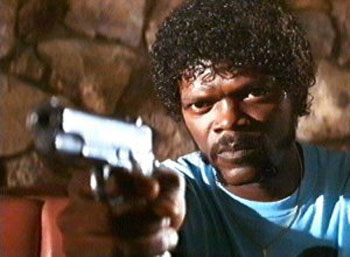I’m sitting here trying to compose my thoughts on this subject, in order to condense them into something that makes as much sense outside of my head as it does inside it.
I will specify from the outset that when I speak of homosexuality and the family, I am trying to be as broad-ranging as possible. The issues faced by homosexuals in striving for equal rights in family and marriage law extend to anyone who considers themselves a member of the wider LGBT community.
My personal opinion on the issue is that it really shouldn’t be an issue, much like the rejection of donor blood being based on sexual orientation. The fact that the individuals concerned are gay should be of no consequence. LGBT parents are just as fit and prepared to raise an emotionally balanced and happy child as their heteronormative counterparts. In fact, I would go even further and say that LGBT parents’ life experience as a group who remain routinely discriminated against would be an asset to them, in raising a child to deal with issues of tolerance and social equality in the most productive manner possible. I think the child of such couples, if anything, is exposed early on to the various perspectives on their parents’ orientation, and while this is frequently a painful thing, with loving parental guidance this can lead them to develop more sophisticated coping mechanisms than their more sheltered peers.
When I was a Christian, I was regularly exposed to anti-LGBT rhetoric and “apologetics”. For those of you who don’t know, “apologetics” is basically a euphemism for making the horrifically offensive and nonsensical parts of the Bible seem more palatable to the sane person. Usually by completely twisting syntax and effectively contradicting the original text. And even then, I had a problem with it. My brothers and sisters in Christ ™ would frequently say such things as “well, children couldn’t possibly be raised right by a gay couple”, “you learn different things from your father than you do from your mother”, and my personal favourite “but, who’s going to teach their daughter about periods?”
Yes. I regret to inform you that I actually heard the last one. They were basically implying that the life lessons we accumulate to form our personality and life experience come so differently from parents of opposite sex that they could not possibly be recreated in a scenario where the parents are same-sex. Like the period issue. I know that when I was 11 my mother sat me down and explained to me how pads and tampons worked and what was going to happen, but even had she not, I think I would have figured it out. It’s not rocket science. Besides, even if I had lacked the guidance of this sacred maternal menstrual mentor, I got enough information from all the other people in my life who happen to menstruate – I have a legion of aunts, female cousins, friends, I could just as easily have asked, were I overwhelmed by the magnitude of affixing a piece of absorbent plastic to my knickers. And yes, I learned different things growing up from my mother and father. I learned different things from them because they are different individuals, not because of some kind of parental yin-yang where my dad taught me “man stuff” and my mom taught me “woman stuff”. From these two individuals combined I learned such lessons as: how to ride a bike, how to fall out of a poorly-constructed treehouse, not to crash my first tricycle into the patio doors, not to ever get into a field with a bull, not to touch the cooker to see how hot it really was, and of course values like generosity, kindness, and how to deal with anger without throwing my little sister down the stairs.
If you put two separate individuals together to raise a child, their respective sexes do not matter. I. Don’t. Give. A. Single. Crap. And neither should you. What matters is that LGBT parents are grounded, caring, and sensible people who will love the child and give them the lessons that really matter.
Currently, as I understand it, lesbian couples can have a child through IVF, but this is not an option for all LGBT couples, so the adoption issue arises. As of now, LGBT couples – in most places – cannot adopt a child, and I think this is outrageous. If they have been assessed on characteristics that really matter – their ability to cope with the cost of raising a child, their behavioural histories, etc. – then it is out of the question that they should be denied the opportunity to give a loving family to a child who needs it. There are so many goddamned abandoned children in this world, and yet we insist on restricting the pool of suitable, loving parents for them based on the fact that some of those parents are LGBT? Fuck off.
It’s ridiculous. And if you want to know how I feel about gay marriage? My response will be pretty much the same as it was to the adoption issue. Sexual orientation should not be an obstacle to being legally married to the person you love. I mean, we’re OK to let the LGBT community have sex with each other, but god, we don’t want them to get all loved-up. We want them to live out their romantic lives in the closet – invisible, ignored. If we let them marry, we might have to acknowledge them, and if we acknowledge them we acknowledge our own discrimination against them, and that it’s wrong.
I say marry whoever the fuck you want, the rest of the world be damned.






